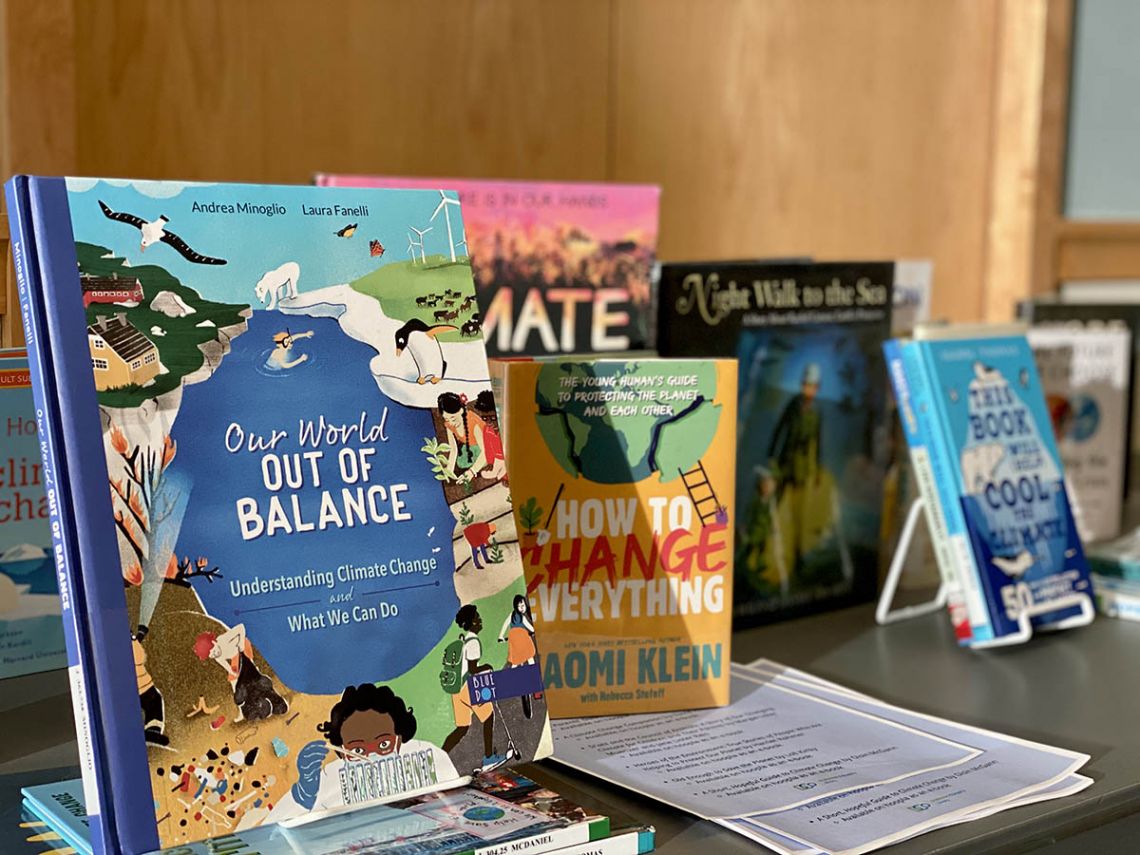Seven Tips for Talking to Children About Climate Change
A Duke environmental educator offers best practices for those challenging discussions

 In terms of comfort level, talking with children about climate change ranks right up there with the birds and the bees.
In terms of comfort level, talking with children about climate change ranks right up there with the birds and the bees.
But even so, there’s no need to add stress to the discussion, said Nicolette Cagle, a senior lecturer in Duke’s Nicholas School of the Environment and the co-director of the Health and Environmental Scholars Program for local high school students.
“Try to keep it simple,” Cagle said. “Kids have fewer coping skills than adults, and they’re dealing with negative emotions, too.”
“And because climate is such a core topic of their education and world, you need to make sure that they are receiving some basic instruction,” Cagle said.
Cagle spoke at a recent Durham County Library event, “Talking to Kids About Climate Change,” and gave the following advice:
- Stay informed: Begin by gathering information to help frame your discussion.
- Break the silence: Broach the subject when climate change begins coming up in their world, Cagle said. They may have questions from school or from exposure through media, including books, television and news. Once you begin the conversation, Cagle said, you've opened doors to having an ongoing dialogue about climate change.
- Start with the facts: Ask your child what they already know, clarify any misconceptions and use age-appropriate language and concepts. It’s also important to remind young children that there are grownups out there working to protect the environment and protect them, Cagle said.
- Sit with discomfort: There’s no right way to have this discussion, Cagle said, and it doesn’t have to go smoothly. Recognizing discomfort can be an important part of the process, and it doesn’t need to be dismissed.
- Enjoy nature: Time outside helps children develop positive environmental identities and a sense of stewardship, Cagle said. It also helps boost mental well-being.
- Be proactive: To avoid climate fatigue, find activities you can do with your child that can help empower them. Some of Cagle’s suggestions: use fewer plastics, write letters to public officials or start “Meatless Mondays” in your home.
- Find hope: Share positive examples of people making a difference. For inspiration, Cagle recommended listening to the podcast, “Stories of Climate Change Hope.”
This effort reflects the Duke Climate Commitment – which will be formally announced on Sept. 29 – and builds on the university’s longstanding leadership in climate, energy and sustainability to educate a new generation of climate-fluent innovators and create equitable solutions for all. The effort unites the university’s education, research, operations and public service missions to engage the entire community in the pursuit of climate change solutions.
Follow the Duke Climate Commitment on Twitter @DukeUClimate.